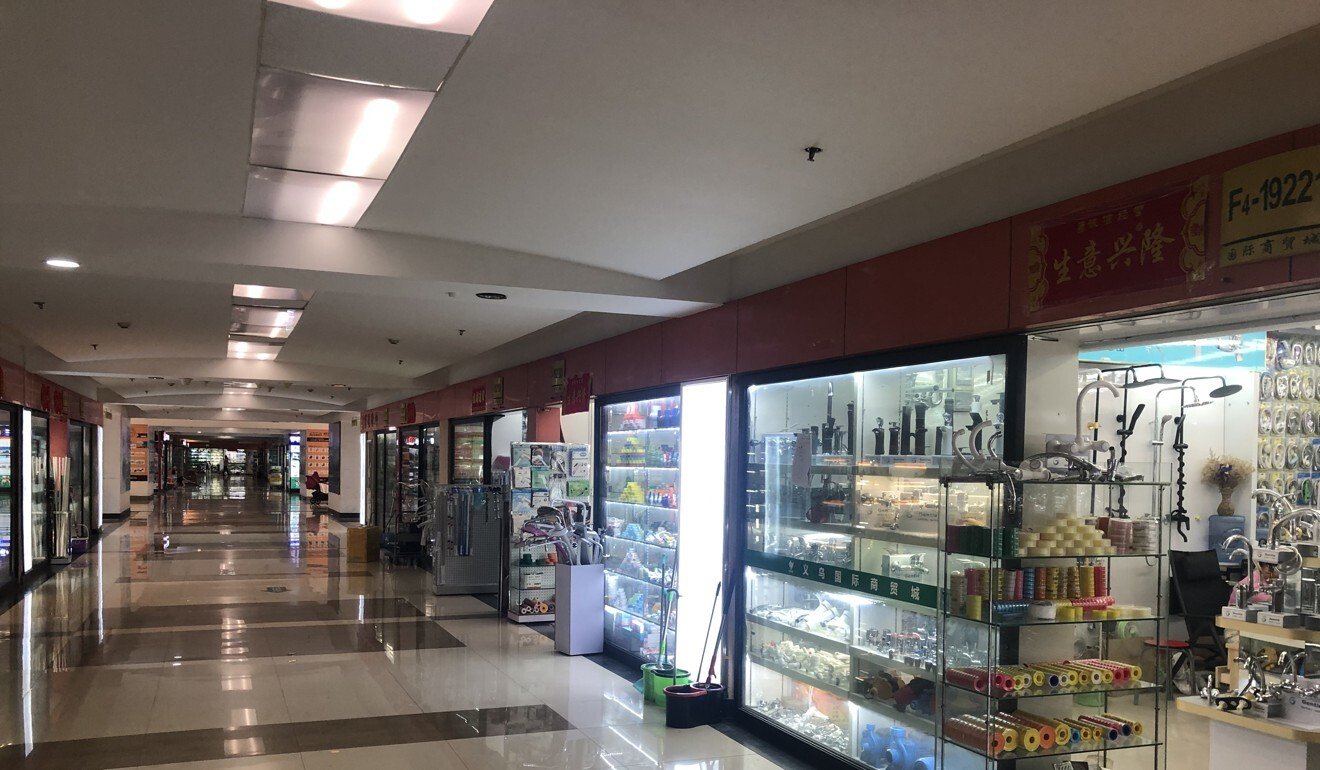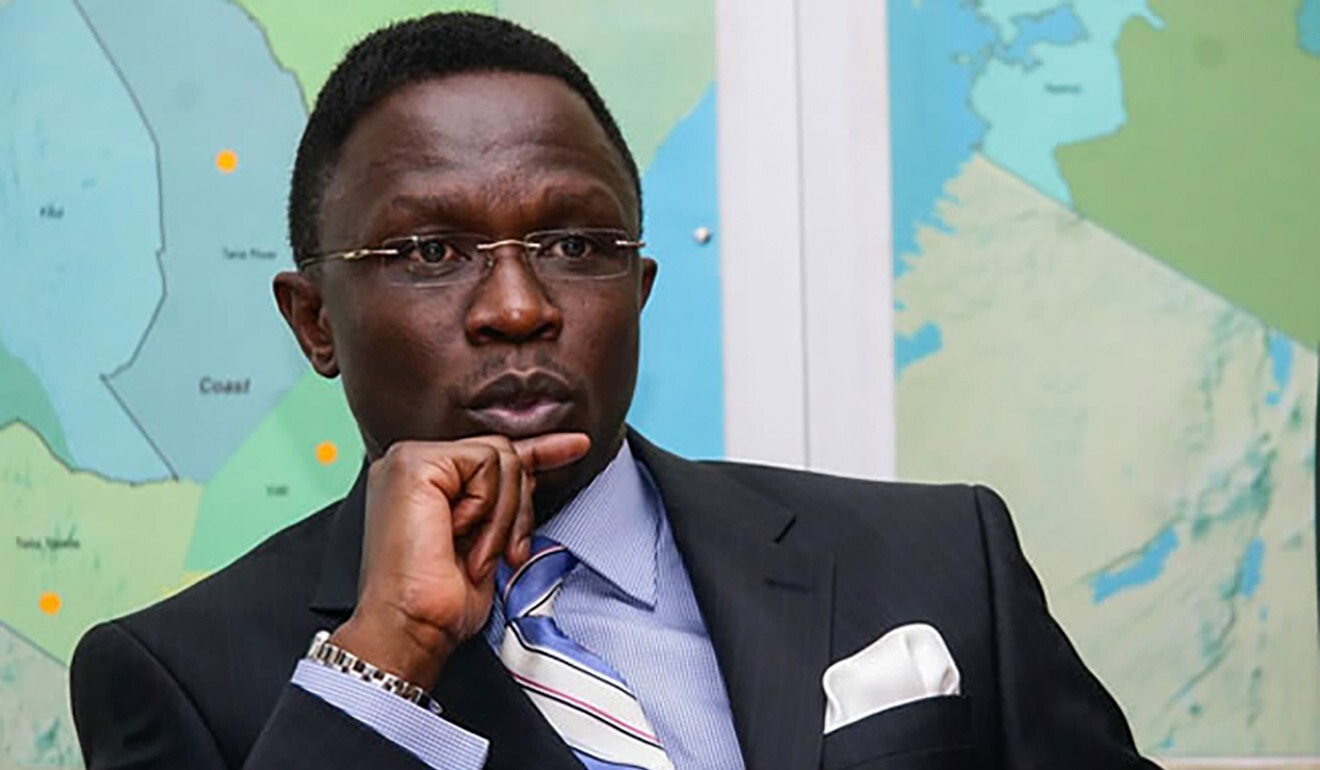
Coronavirus: how China’s closed borders have hit trade and diplomacy
- Chinese traders are feeling the pinch as they try to do everything online, as overseas clients count the cost of shipping delays
- Meanwhile, top-level meetings have been held virtually at a time when Beijing’s relations with major trade partners are worsening
This is the seventh in a series about China’s plans to reopen its borders amid the Covid-19 pandemic. Here, Josephine Ma, Cissy Zhou and Jevans Nyabiage look into how China’s trade and diplomacy have been affected by the lack of face-to-face interactions.
Like many countries, virtual meetings have been vitally important for China – the world’s second-largest economy – to keep trade and diplomacy alive after it closed its borders in March last year.
But videoconferencing does not always cut it, especially for trade and diplomatic activities. With travel still limited, many traders in China say their businesses are suffering, while on the diplomatic front the trust gap is widening between Beijing and the West and a lack of in-person talks makes it even harder to bridge.
Moving online
Although China posted strong growth in foreign trade last year and early this year, many traders, particularly the small ones, have been hit hard.
Jimmy Zhao, who runs a wallpaper factory in the city of Yancheng in Jiangsu, said his business had fallen by half from the pre-pandemic level and he had to lay off 20 workers because 80 per cent of his products were for export.
“We’ve used social media and video calls to communicate with clients but it doesn’t scratch the itch,” Zhao said. “Our clients used to bring us samples and we would talk through every detail of the design. The design is now all on us, which doesn’t satisfy all clients and some of them have stopped working with us.”
Businesses at the Yiwu market in Zhejiang province – the world’s largest trading centre for small commodities – are also feeling the pinch.
“The restrictions on travel have significantly impacted our business, I can barely estimate our losses,” said Jin Qingxian, who sells lamps, fans and batteries at the market.
Ninety per cent of Jin’s products are sold overseas. She now relies on social media networks like WeChat and QQ and email to stay in touch with her clients.

Shipping delays because of border restrictions have also hit clients who rely on Chinese suppliers.
Narendra Raval, founder and chief executive of the Devki Group, East Africa’s largest building materials company, has been waiting since late last year for equipment from China for his new US$200 million steel factory in Mombasa, on the Kenyan coast.
The shipment was delayed due to a shortage of container ships and travel restrictions have meant just six of the 40 Chinese engineers needed to install the equipment have arrived in Mombasa so far.
“We are building the steel plant using loans and interest costs are rising each day,” said Raval, who runs several other steel and cement plants. “This is a big loss for us.”
Ababu Namwamba, chief administrative secretary of Kenya’s foreign ministry, said it was difficult for traders to source the right products and sort out export requirements without travelling to China.
He gave the example of Kenya’s 2019 deal to export frozen avocados to China, where they can be sold for a lot more than in the local market.

“We were in the middle of implementing a very lucrative deal that would see increased agricultural exports to China,” Namwamba said. But two years on, he said there had been no major expansion of the Chinese market as travel restrictions made it hard for Kenyan vendors to secure new buyers – they could not send people to inspect avocados once they reached China, while Chinese importers could not go to Kenya to check them before they were shipped.
He said furniture importers were also among those hard hit. “If they want to buy furniture, they want to travel to a place like Foshan to physically check out furniture, buy and ship to Kenya,” he said. “The limitations on physical contact and travel have affected Kenya-China trade considerably.”
‘Very scripted’
But Foreign Minister Wang Yi has hailed Beijing’s use of “e-diplomacy”, or new ways to conduct international relations, as a major achievement during the pandemic. He said Xi was “personally involved in designing and directing meetings with foreign leaders and heads of international organisations through e-diplomacy” last year, taking part in virtual talks 87 times with other leaders and at 22 multilateral sessions, according to Xinhua.
Many of the most fruitful moments of leader diplomacy happen when the leaders are alone, or only with a translator
Despite that, experts say many things can only be achieved through face-to-face diplomacy.
Marcus Holmes, associate professor of government at the College of William and Mary in the US, said it was hard to pick up subtle body language and facial expressions during a virtual meeting and some breakthroughs tended to be made during informal moments in a physical meeting.
“[With videoconferences] everything is planned in advance, making it difficult to ‘bump into’ someone at a conference. Some diplomats and leaders are also uncomfortable with the formal nature of the meetings, where individuals take turns speaking in a very scripted way,” he said. “It often leads to reading talking points as opposed to off-the-cuff remarks, which can be both more honest and compelling.”
There is also the issue of cybersecurity to consider. “It is very difficult for leaders, in particular, to exclude outsiders from the interaction. Many of the most fruitful moments of leader diplomacy happen when the leaders are alone, or only with a translator, not fearful that others off-camera are listening in or the interaction is being recorded,” Holmes said.
Rising tensions
“On China-US relations I think that the lack of diplomacy has certainly hurt,” Holmes said. “It is through meeting, listening to the other, and placing oneself in the shoes of the other, that leaders come to realise that the only security between the two can be mutual security.”

02:23
Gloves off at top-level US-China summit in Alaska with on-camera sparring
Still, there are signs that Xi may resume face-to-face multilateral diplomacy later in the year.
Pang Zhongying, an international affairs expert at the Ocean University of China in Qingdao, pointed to meetings including the G20 summit in Rome in October, which Xi is expected to attend, and the Asia-Pacific Economic Cooperation talks in November, though it is still unclear whether they will be virtual or in person, or if Xi will attend. China will also host the UN Biodiversity Conference in Kunming in October.
Wang also met his Asean counterparts in Chongqing this month – their first in-person talks since the pandemic started – where he announced a plan to upgrade China’s relationship with the bloc to a “comprehensive strategic partnership”.
Why Asean-China relations will remain cordial, but not close
Pang noted that Beijing’s efforts to shore up relations in the region come amid growing tensions with other world powers. “China’s relations with Western countries, like the US and EU, are tense,” he said. “Relations with Japan have not recovered in a real sense, and China’s relations with India are also tense. On the other hand, Biden continues to push America’s Indo-Pacific strategy.” Beijing sees that strategy as a containment policy.
Even with more in-person talks, China faces a challenge to gain the trust of its own region and beyond. Territorial disputes in the South China Sea have long been a source of tension between China and some Asean members, including Brunei, Vietnam and the Philippines.
Pang said Asean was reluctant to accept a “comprehensive strategic partnership” with China, a designation it uses for countries it has strong ties with. “China’s relations with Asean may be better,” he said. “But their relations are complex because of the South China Sea and other issues.”










